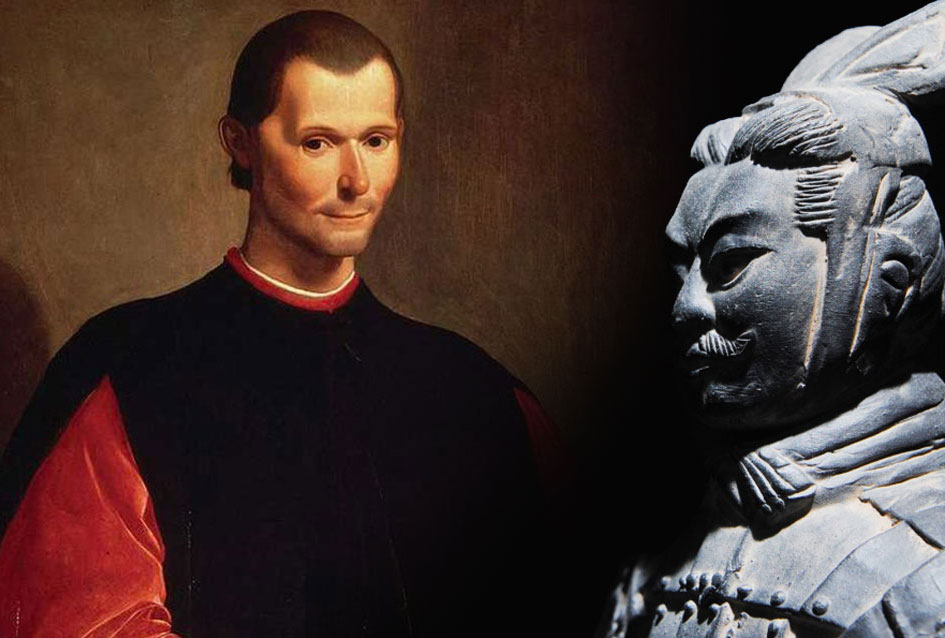Published in The Advocate.
Mickey Mantle had enormous talent. Had I not been raised in San Francisco in the 1960s, I might have believed him to be the most naturally gifted baseball player I had ever seen. But even Mantle acknowledged that coaching was the key to his skill at the plate:
“My dad taught me to switch-hit. He and my grandfather, who was left-handed, pitched to me every day after school in the back yard. I batted lefty against my dad and righty against granddad.”
We are each endowed with distinct capabilities and thrust into arenas in which we may achieve greater or lesser success. For litigators, however great one’s talent, the result of our efforts is often dictated by the facts, law, quality of witnesses and the unpredictable role of serendipity. While preparation and diligence can mitigate the winds of fortune, we cannot stop the gale. As I observe counsel struggle against unknown forces in mediation, I often wonder why they fight so relentlessly to control and manipulate the process – and often the mediator – rather than harness the power of the process.
First inning: Trust
Consider a fictionalized mediation session: Mickey and Joe roamed the out-field together for a major league baseball team. They had an uneasy alliance. Joe, the aging superstar, always uneasy in the public gaze, saw the twilight looming and the public’s adoration for young Mickey growing. But, nature was taking its course and his body was telling Joe that time was running out. He was also unusually cerebral for a ball player. He knew that money needed to be made while the opportunities presented themselves. He also cared deeply about the game, and while jealous, he also respected Mickey’s talent. He resolved to do what was appropriate for the future of the organization that was his legacy.
Mickey and Joe went into the restaurant business together, capitalizing on their huge popularity. The restaurant was a success, with patrons flocking to the establishment to see Joe and Mickey when they were in town. Then one day, Mickey had a horrible accident; he twisted his knee and tore the ligaments. Mickey was out for a season. Mickey privately blamed Joe, believing that he caught his foot on Joe’s glove, which he believed he had tossed on the outfield grass. The incident inflamed their already tense relationship. Mickey insisted on dissolving their restaurant partnership. When Joe hesitated, Mickey filed suit.
Pursuant to an oral agreement, the partners had invested equally in the start-up, shared profits equally, and entered the mediation not willing to meet together.
Although litigators participate in mediation with increasing frequency, the level of sophistication with which many counsel interact with mediators demonstrates a lack of trust in the process and a failure to fully utilize the benefits of an impartial aid to the negotiation. Assuming the parties have selected a competent mediator, worthy of their trust, one role which they often neglect to assign is that of “negotiation coach.”
I have labored many years in the litigation trenches, trying cases, handling appeals and arbitrations, engaging in the intellectual give and take of complex summary-judgment battles. I am proud of my litigation record and of the clients I have had the honor to represent. For all of the thrills, the highs and lows; I have a confession. I always believed that I had more impact in the dugout than in the courtroom.
My years as a Little League coach yielded many gratifying moments. Teaching young adults the fundamentals of the game, and preparing them to achieve the best results on the field and to function under pressure, was extraordinarily rewarding. The most fulfilling aspect of coaching youth sports was helping young men and women develop their character, and their parents to gain a better perspective.
As I transitioned from active litigator to mediator and arbitrator, I often thought of my days in the dugout and the lessons learned during those halcyon Springs. And I reflected on Mickey’s backyard lessons.
The sage of Yankee Stadium, Yogi Berra, once observed: “You’ve got to be very careful if you don’t know where you are going, because you might not get there.” Mediators wear many hats, often depending upon the needs or interests of the parties and the disposition and talents of the mediators: facilitator, evaluator, translator, confessor, sounding board, bearer of bad news, and generator of options.
The roles played by the mediator during the course of the process will change, as the negotiation progresses. If the parties and counsel have not worked with the mediator in the past, the degree to which they will be inclined to allow the mediator to serve a particular function will be dictated by their confidence in his skills and trustworthiness. They have paid a fortune to their counsel for legal advice, why should they listen to an evaluative point of view from the mediator?
Joe and Mickey have a history of personal tension, and emotional baggage may interfere with a rational discussion of the wisdom of continuing their partnership or separating on one set of economic terms or another. They may never have met the mediator before. Why should they trust him by sharing their innermost insecurities and feelings toward the other or their place in the constellation of baseball stars? Before the “coach” can gain acceptance, he must earn the right – by demonstrating that he will respect confidences, that he grasps the issues, and that he is sensitive to the same human vulnerabilities which will be the subject of discussion.
Second inning: Self-determination
A guiding principle of mediation is the self determination of the parties. (ABA Standards of Conduct for Mediators, Standard I.) Indeed, what separates mediation from adjudicatory processes such as trial or arbitration is the right and power of the par-ties, within the limits of having bargaining partners, to determine whether they can find a negotiated solution which accommodates their interests. Mediation is a facilitated negotiation, as distinct from a process in which the parties have surrendered to another the power to decide the outcome of their dispute. However, there exists a great deal of latitude within the process as to how “facilitative” or “evaluative” the parties desire a mediator to become, or how skillful the mediator may be along either of those spectra.
Often unspoken is the role of the mediator as coach. The notion of “coaching” the parties and counsel during a mediation is not inherently inconsistent with a mediator’s “neutrality” or disruptive of the debate as to whether mediators are most effective when being “facilitative” or “evaluative.” No competent mediator would intentionally engage in conduct or structure a process, which fails to maximize the opportunity for the parties to achieve their individually, and mutually, identified objectives. For that reason, sophisticated mediators reject the concept that a good settlement is one in which all parties are “equally unhappy,” instead seeking a resolution which satisfies the genuine interests of all participants.
But acknowledged or not, and whether the parties overtly ask for an evaluation or send the mediator into the other room to “just tell the other side they are going to lose,” the concept and execution of the mediator’s role is complicated by the requirement that a mediator not interfere with the self-determination of the parties in his role as “impartial” facilitator of the negotiation. Many parties seek not only the mediator’s unbiased and confidential perspective on the strengths and weaknesses of their positions, but advice on how to move the negotiations toward resolution. How the mediator accomplishes these nuanced assignments, invested with confidential information from each side, and without manipulating the outcome, is the subject of this article.
Third inning: Seize the day
There is a tide in the affairs of men, Which, taken at the flood, leads on to fortune
Omitted, all the voyage of their life
Is bound in the shallows and in miseries …
And we must take the current when it serves,
Or lose our ventures.
(Shakespeare, Julius Caesar, Act IV, Scene 3)
As in baseball, opportunities present themselves in litigation and victory often comes to those with the vision and skill to recognize and take advantage. Frederick Wilcox wrote that “. . . you can’t steal second base and keep your foot on first base.” Good lawyering often consists of avoiding errors and capitalizing on the chances afforded by circumstance. Negotiation affords opportunities entirely distinct from those of the battlefield – opportunities often unconstrained by the four corners of a pleading. What can a mediator, as “coach,” offer the parties?
Contemporary mediations of litigated civil matters follow fairly predictable stages. The parties may choose to short cut the process in cases in which the issues and facts are simple, emotions are in check, or the parties or their attorneys merely seek the “cover” of someone assisting them as they move toward a result based upon an external “evaluation” of a single issue: monetary value in a zero sum distributive bargain. In such cases, after sharing an evaluation of the “value” of the case with both sides, and coming to understand from their reactions where the zone of possible agreement may rest, a mediator may be called upon to help the parties structure their moves to “test” how much, or how little, money needs to change hands for a deal to be achieved. After a few rounds of sparring, taking care not to kill a deal, but to assure all hands that they have achieved the best possible bargain, a settlement is concluded.
But if the issues or facts are disputed or complex, or the relationships problematic, the process generally involves:
- the parties exploring the facts, sharing information and venting or “having their day in court”;
- understanding their own interests and those of the other parties;
- developing potential options for resolution;
- reaching agreement; and
- memorializing their agreement.
The role of mediators in assisting parties at each of these stages has been the
subject of much discussion in the literature. A less often discussed issue is the proper role of the mediator in “coaching” the parties and counsel as they proceed through these stages.
Fourth inning: Balancing confidentiality against manipulation
The California Supreme Court recently reaffirmed the absolute confidentiality of the mediation process. (Cassel v. Superior Court (2011) 51 Cal.4th 113.) Many consider confidentiality central to the process to encourage parties candidly to communicate with their opponent or with the mediator, to facilitate disclosure of information for the purpose of improving the prospects of settlement, but which is theoretically insulated from discovery if the mediation fails. Putting aside the validity of this theory, perhaps a more vibrant rationale for confidentiality is to encourage candor in disclosure to the mediator to permit the mediator to provide a helpful “evaluation” and guidance in assessing the disclosing party’s bargaining position and negotiating strategy. Only by fully comprehending a party’s bargaining position can the mediator help that party assess its “hand” and the risks inherent in each bargaining move.
Despite appearances to the contrary, mediators are not as na”ive as we often appear. True, some mediators “phone it in,” dutifully carrying messages from room to room, executing the strategy devised by the parties and providing little value beyond that once afforded by the now extinct carrier pigeon. But if a mediator is to provide any value, especially possessed of insights gleaned from communication with both parties, the litigants can gain most by invoking the protections of confidentiality, risking vulnerability, and allowing the mediator to understand their true motivations, interests, strengths and weaknesses.
Some parties and counsel seek very evaluative guidance from their mediators, especially in the context of litigated matters which appear to be zero sum (i.e., cases in which the bargaining is distributive, where assessing the “value” of a party’s claim is the primary factor in reaching a resolution). Along the spectrum from evaluative to facilitative, where a mediator assists the parties to understand their interests and develop options to satisfy the mutual interests of the litigants, a mediator utilizes many tools, including those which help the parties better understand the strengths of the parties’ positions, and thus can feel evaluative.
Fifth inning: Preparing for joint sessions
Consider the conflict between Mickey and Joe. Where then is the line between evaluation and coaching? How does a mediator, armed with confidential information from both parties, avoid manipulating the process to an outcome determined by the mediator, rather than the parties? There is a schism within the mediation community between those who believe in using caucuses and those who believe in using joint sessions exclusively. The split is decidedly in favor of a model which employs private caucuses, with the major struggle among mediators and counsel in recent years involving whether counsel will allow their clients to participate in even a single joint session. Those mediators who advocate the exclusive use of joint sessions do so on the theory that only by limiting communications among the parties, counsel and the mediator to joint sessions can the participants avoid a scenario in which the mediator intentionally or inadvertently manipulates the process by the use of confidential information.
In an ironic twist, many mediators find that counsel seek to avoid types of confrontations and conflict with which they are unfamiliar, or which they feel that they cannot control. As litigators we are comfortable with the rules of the courtroom and of depositions. The mediation joint session makes many uneasy. Emotions flair in ways which may be extraordinarily productive for dispute resolution, but beyond the experience of litigators who prefer not to trust mediators to control the process.
Beyond an aversion to uncontrolled conflict, counsel often prefer to either control the messages conveyed by mediators or give latitude only to those with whom they have had sufficient prior experience. In these circumstances, private caucuses provide a better format to control and communicate information and interests and give the mediator clues as to probable outcomes. Armed with such insights, counsel sometimes hope that the mediator can steer the negotiation toward their desired result. But without knowing the limits of the opposing parties’ authority or tolerance, the danger of a mediator as negotiating coach is apparent.
In the course of preliminary private caucuses, the mediator may learn from Mickey and Joe of an underlying source of tension, and perhaps the cause of their break-up: the injury to Mickey. From Mickey’s perspective, Joe left his glove in the outfield, probably intentionally due to his jealousy, Mickey was injured, and Joe regained the limelight. Joe shared an entirely different story. It was not his glove at all. In fact, he believes Mickey twisted his knee tripping on a poorly maintained sprinkler head. It was a horrible incident. Joe felt so badly as the face of the team that, unbeknownst to Mickey, it was he, not the team, who had paid for all of Mickey’s rehabilitation over the course of the year. Naturally, he did double duty at the restaurant as well, since Mickey could not stand long enough to make personal appearances.
Joe was a very private person, rarely speaking to the press, and was reticent to share any of this with Mickey; he empowered the mediator to do so as he felt appropriate. Instead, the mediator suggests that the parties participate in a limited joint session at which the mediator would set the agenda and direct the conversation to the parties’ understanding of certain issues, including the incident which caused the schism which has prompted their desire to separate. In private caucus, Mickey agrees, eager to tell Joe what he thinks of him. Joe reluctantly agrees as well, after walking through with the mediator how the conversation may play out.
Following the joint session, the parties reconvene in their separate rooms to reconsider their positions. Do they desire to continue in business together? If they are determined to separate, on what terms?
Sixth inning: Negotiating strategy
Coaching is founded on a bedrock of trust. Mediators must begin the process with a commitment to respect the parties’ rights of self-determination. By assisting the parties in understanding the facts, their own interests and those of opposing parties, developing options, and counseling them on the best way to present their positions at different stages of the process, a mediator can enhance a party’s bargaining position without diminishing the power of their role in determining the outcome of the negotiation by removing or minimizing barriers to resolution. The danger in the process lies in the possibility that the mediator may direct or orchestrate an outcome, as opposed to assisting the parties in achieving a mutually desired result of their own creation.
Parties will often seek a mediator’s advice on how a proposed negotiation move will be received by an opposing party. It is here that the danger of manipulation is greatest, and the value of coaching is optimal. A mediator’s greatest tool is the question and his greatest enemy are the words, “I think.” By encouraging an understanding of alternatives and possibilities, such as a reflection on how a negotiation has proceeded, and what options remain available, coupled with insights
into social science attitudes toward certain negotiating moves, a mediator can provide valuable assistance without betraying confidential information.
Often, of course, a mediator can be effective precisely because both parties want the mediator subtly to communicate negotiation strategy which is technically confidential, but which is essential to achieving a deal. Sophisticated mediators know how and when to accomplish these tasks and what cues are important.
Working through the mediator in these situations also overcomes a problem known as reactive devaluation. If a party floats an idea as her own to the opposing party, it will necessarily be met with skepticism. Consider your own reactions to a proposal from opposing counsel: If they want it, something must be wrong with it! If I can have it, I can probably get more. As mathematician Blaise Pascal observed: “We are generally more persuaded by the reasons we discover ourselves than by those given to us by others.”
To overcome these barriers, mediators probe and poke about in ways which often can get a party to come up with an idea as their own, grab it as it floats from the ether, raise it as a hypothetical, or as a last resort suggest it as coming from a neutral source such as the mediator himself. By insulating parties in this way, the mediator protects all of the parties from a certain amount of risk after understanding that the proposal potentially meets their mutual objectives.
In the process of raising questions and testing hypothetical reactions to a party’s proposals, a mediator also provides a necessary reality check and helps the parties develop options responsive to interests which emerge from probing conversations.
After the joint session, Mickey has reevaluated his position. While he convinced himself that Joe was responsible for his injury, deep down he always questioned whether Joe was capable of such treachery. But too much time has passed, and too much bad blood has built up. Mickey is determined to split up with Joe and discontinue their business partnership. By exploring privately with each party their interests, their points of view about the relative merits of their cases, their desire to continue in business or sell to the other or third parties, the mediator may help float proposals, counsel Joe and/or Mickey on shaping offers or counter proposals throughout the balance of the mediation.
Seventh inning: Language
Among the most valuable services rendered by a mediator is providing assistance in the choice of language. When preparing parties and counsel for a joint session or meetings of groups of parties or counsel, a mediator can walk through scenarios for how the meeting will unfold, making suggestions for how an approach will be received. Recommendations for shaping a proposal, an approach, to whom it is directed and by whom it is made, what language is used, all may reflect a mediator’s sensitivity based on disclosures made in confidence earlier in the mediation. These coaching tips are designed for the benefit of both parties, to achieve greater success in communication.
Having heard Mickey’s emotional statement of the facts in their initial separate session, and a different perspective from the introverted Joe, the mediator likely would ask each to reflect before the joint session on how their stories might be heard and received by their bargaining partners. The mediator’s purpose would generally not be to diffuse or minimize either party’s honest communication of their emotions. Rather, each should be thoughtful in his choice of language, and how it is received, and each should be prepared to filter what they hear as a reflection of the speaker – making sure they understand the content and not merely get distracted by the delivery.
Eighth inning: Who has the ball?
It would not be unfair to air the cynic’s concern that the mediator, at any given point, is helping one side manipulate the other, rather than assisting communication on an open playing field. The most reasonable response is that the parties generally are seeking a deal and have invested the mediator with broad authority to advance the dialog to accomplish this goal. As long as the mediator is mindful of the parties’ whispered interests and objectives and in his “coaching” does not substitute his judgment for theirs in deciding what moves to make, their self-determination remains intact. Might they achieve a “better deal” by blind bargaining? It is possible, but the price in further litigation before such a result is achieved might be too high, and the creative opportunities lost might be too painful.
Ninth inning: The evolving game
There are those who prefer a process in which the parties work exclusively in joint session so that manipulation is minimized and communication among all parties, counsel and the mediator are entirely transparent. There are also those who favor a process in which no joint session occurs, the mediator is highly evaluative and helps direct the parties toward an end which is “fair” by some relatively objective measure that is understood reasonably to reflect the “value” of the case. Increasingly, mediation takes the form of a process in which the parties and counsel actively engage in shaping the discussion, test the options and move toward a solution which optimally meets the respective goals and interests of the parties after testing the lengths to which opponents may go in the bargaining process. The manner in which the mediator may help assist the parties in reaching their optimal solution after confidentially understanding the facts, their interests and objectives is an evolving art.
Mickey Mantle might have been the best right-handed batter of all time if he had only one childhood batting instructor. But with a little more help, he became baseball’s greatest switch hitter.
Greg Derin is a mediator and arbitrator in Los Angeles specializing in civil and commercial disputes, with an emphasis on entertainment and intellectual property matters. From 2004-2012 he assisted in teaching the Mediation Workshop at Harvard Law School’s Program on Negotiation. He is a Fellow of the Chartered Institute of Arbitrators, has been recognized as a Power Mediator by the Hollywood Reporter, and since 2006, as a SuperLawyer in ADR, Intellectual Property and Entertainment and Sports.











